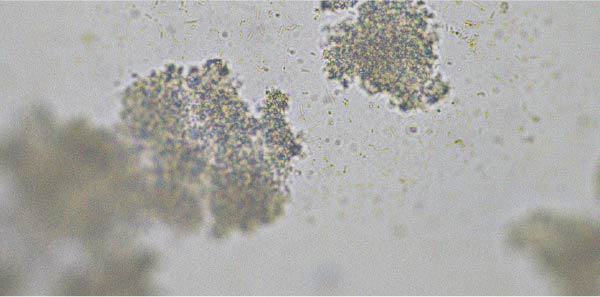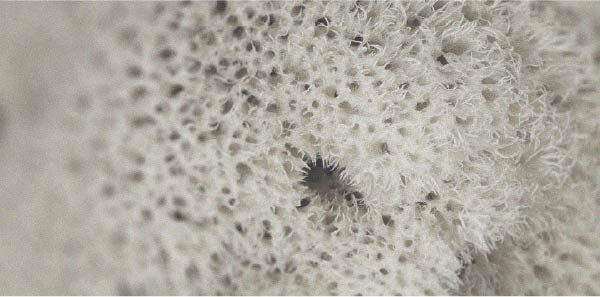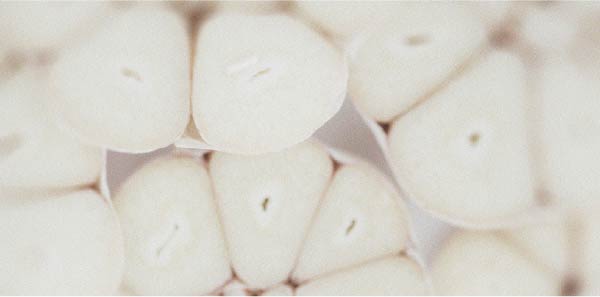10 tips for facilitating digestion naturally
Digestion problems are extremely common. If you’re among the many sufferers, try these 10 natural tips for facilitating the digestive process and restoring your day-to-day well-being.

Avoid heavy meals for better digestion
Of all the nutrients we ingest, fats are the most difficult - and take the longest - to break down. After a particularly high-fat meal, it can be difficult for the digestive system to perform its role properly, resulting in nausea, a feeling of heaviness and bloating... So beware of eating too much fat!
It’s not a question of eliminating all fatty acids from the diet as they’re essential for health. It’s more about applying moderation and prioritising ‘good’ fats: vegetable oils (olive, rapeseed, nut ...), nuts and seeds (hazelnuts, almonds, cashew nuts, sesame seeds ...), avocados, oily fish (sardines, salmon)
How should you eat to improve your digestion?
Eating is quite an art! By following certain rules, you can simplify the work your digestive organs have to do:
- eat 3 meals a day, at regular times;
- avoid stress and anxiety while eating;
- chew your food well before swallowing. Saliva contains enzymes called amylases which initiate the digestive process in the mouth;
- drink plenty of water with your meals and at other times;
- and above all, eat reasonable-sized portions. Stop before you feel ‘completely stuffed’.
Ginger for preventing digestive discomfort
Ginger is a plant native to India where the root is used both in cooking and in traditional medicine. Brilliant for flavoring curries and other stew-type dishes, it has also been used for thousands of years as a tonic by the Chinese.
Scientific research has shown that ginger also helps to maintain digestive health (1). One way to increase your intake is to take a ginger supplement with a high content of gingerols, one of the plant’s key active ingredients (for example, Super Gingerols).
Get checked out by your doctor
If you regularly experience digestive problems that are affecting your day-to-day activities, you should perhaps book an appointment with your GP. A blood test or general check-up may identify allergies, irritable bowel syndrome or some other condition affecting your digestion (2).
With a proper diagnosis, you’ll be able to modify your diet, excluding any problematic foods, and if necessary, take an appropriate remedy.
Liquorice, a plant that’s beneficial for the digestive system
When you hear the word liquorice, do you automatically think of the sweets? Well liquorice is first and foremost a plant that promotes good digestion (3). Highly-fragrant, the root can be chewed, or consumed as a powder, tea or decoction.
Supplement-wise, it’s best to opt for deglycyrrhizinated liquorice, to prevent any potential side-effects from glycyrrhinic acid (try, for example, the product DGL).
Physical exercise improves digestion
Taking regular exercise encourages the digestive system to work properly and helps maintain good intestinal transit. However, it’s not a good idea to launch into an intensive training session straight after a heavy meal – it could cause anything from acid reflux to vomiting. Far better for helping your food go down easily is to go for a walk.
Stock up on calcium
Everyone knows that calcium is essential for strong bones. But it does so much more! It also helps the body’s digestive enzymes to function normally(4).
There are many dietary sources of calcium including certain dairy foods, broccoli, almonds, sesame seeds and wholemeal bread. To boost your daily intake, you can also supplement with calcium orotate for example, and to increase your intake of enzymes, try the supplement Digestive Enzymes.
Add bacteria to the menu
Who hasn’t been recommended yogurt with active bifidobacteria to improve intestinal transit? In fact, this type of dairy and fermented milk help those who are lactose-intolerant to digest it more easily (5).
The kind of bacteria added to these foods can also be found in dietary supplements containing various ‘gut-friendly’ strains of bacteria (such as Lactobacillus rhamnosus GG with 10 billion micro-organisms per dose, or the patented supplement Colon Friendly).
Psyllium husk for slow transit
If your bowel movements are infrequent and your large intestine is working a little too slowly for your liking, psyllium or plantago ovata, a plant indigenous to desert regions, could be the answer.
Studies have shown that psyllium seed and husk help regulate transit (6). This plant may, in particular, help to soften stools, which could be particularly beneficial for pregnant women or those suffering from haemorrhoids.
Le psyllium peut se consommer incorporé dans l’alimentation ou sous forme de complément alimentaire (comme Psyllium Husk).
References
- Bode AM, Dong Z. The Amazing and Mighty Ginger. In: Benzie IFF, Wachtel-Galor S, editors. Herbal Medicine: Biomolecular and Clinical Aspects. 2nd edition. Boca Raton (FL): CRC Press/Taylor & Francis; 2011. Chapter 7.Available from: https://www.ncbi.nlm.nih.gov/books/NBK92775/
- https://www.ifop.com/publication/troubles-digestifs-quand-faut-il-consulter/
- Pastorino G, Cornara L, Soares S, Rodrigues F, Oliveira MBPP. Liquorice (Glycyrrhiza glabra): A phytochemical and pharmacological review. Phytother Res. 2018 Dec;32(12):2323-2339. doi: 10.1002/ptr.6178. Epub 2018 Aug 17. PMID: 30117204; PMCID: PMC7167772.
- Eich T, Ståhle M, Gustafsson B, Horneland R, Lempinen M, Lundgren T, Rafael E, Tufveson G, Zur-Mühlen BV, Olerud J, Scholz H, Korsgren O. Calcium: A Crucial Potentiator for Efficient Enzyme Digestion of the Human Pancreas. Cell Transplant. 2018 Jul;27(7):1031-1038. doi: 10.1177/0963689718779350. Epub 2018 Jun 26. PMID: 29945463; PMCID: PMC6158545.
- Oak SJ, Jha R. The effects of probiotics in lactose intolerance: A systematic review. Crit Rev Food Sci Nutr. 2019;59(11):1675-1683. doi: 10.1080/10408398.2018.1425977. Epub 2018 Feb 9. PMID: 29425071.
- Noureddin S, Mohsen J, Payman A. Effects of psyllium vs. placebo on constipation, weight, glycemia, and lipids: A randomized trial in patients with type 2 diabetes and chronic constipation. Complement Ther Med. 2018 Oct;40:1-7. doi: 10.1016/j.ctim.2018.07.004. Epub 2018 Jul 10. PMID: 30219432.
Keywords
5 Days
Easy to navigate site
Easy to navigate site, had what I was searching for, good price. easy order-check out
James Tucker
11 Days
My skin is clearing up nicely!
Pretty good for my skin so far.
Christian
13 Days
The new packaging is excellent
The new packaging is excellent - finally! No more squashed boxes and torn envelopes.
GORAN
14 Days
Great Product
Great Product
Larry Garrett
18 Days
Quick shipping
Quick shipping; good price. No issues!
Mary McCarty
20 Days
Thr product is very good and is helping…
Thr product is very good and is helping me on my health. Then is always on time
LUGO Luz
22 Days
Buying was fine
Buying was fine. I had problems with the website not recognizing my login info, and had to call to get it fixed. Other than that, everything was good.
David S. Clark
23 Days
Your super maca and super ginseng are…phenomenal
Your super maca and super ginseng are phenomenal supplements that compliment each other when taking them together. Fantastic feeling of well-being and lots of mid day energy without the crash.
Keith Mason
25 Days
I have had amazing results with every…
I have had amazing results with every supplement I've purchased. I am extremely satisfied with this company
kirstin Torres
26 Days
Fine products
Fine products . They are on the leading edge of online supplements. The only issue -so far-is they sometime run out of subscription items.
Jason Argos
28 Days
The ordering process is very user…
The ordering process is very user friendly and the products always come in a timely manner.
CARTER Rhonda
29 Days
The price for Dr
The price for Dr. Pero's AC-11 is reasonable and in line with his views. (my former colleague). Keep it pure.
CAMPBELL Clayton
32 Days
Right on every time.
Right on every time.
Arthur Nicholas
35 Days
They are cheaper than everyone else and…
They are cheaper than everyone else and the shipping was fast. Great company.
Patricia Adams
42 Days
Availability of quality health…
Availability of quality health supplements and it's wide variety is impressive. Ordering is seamless and shipping even during the holidays is well streamlined.
Mohamad Hussein




